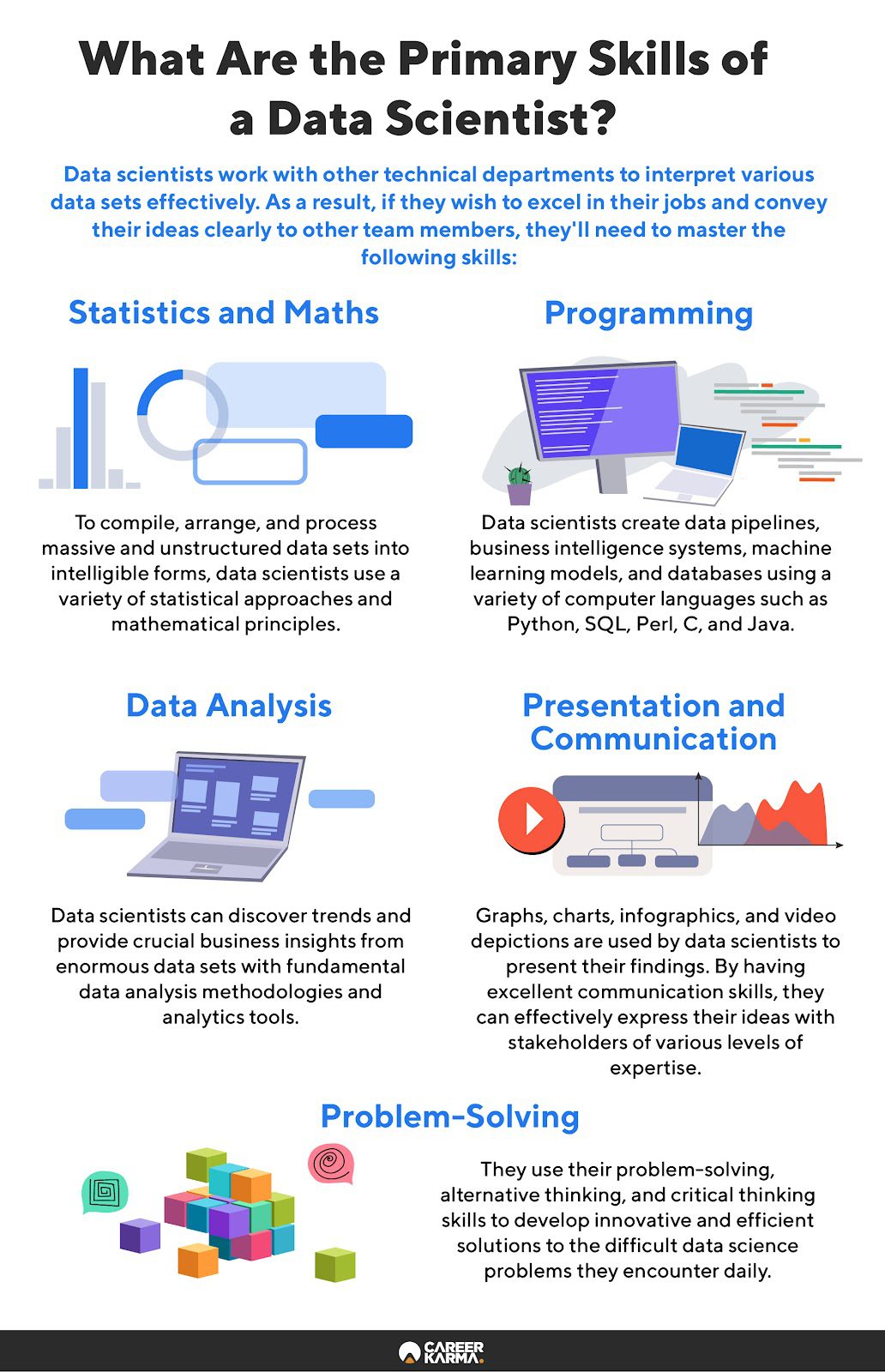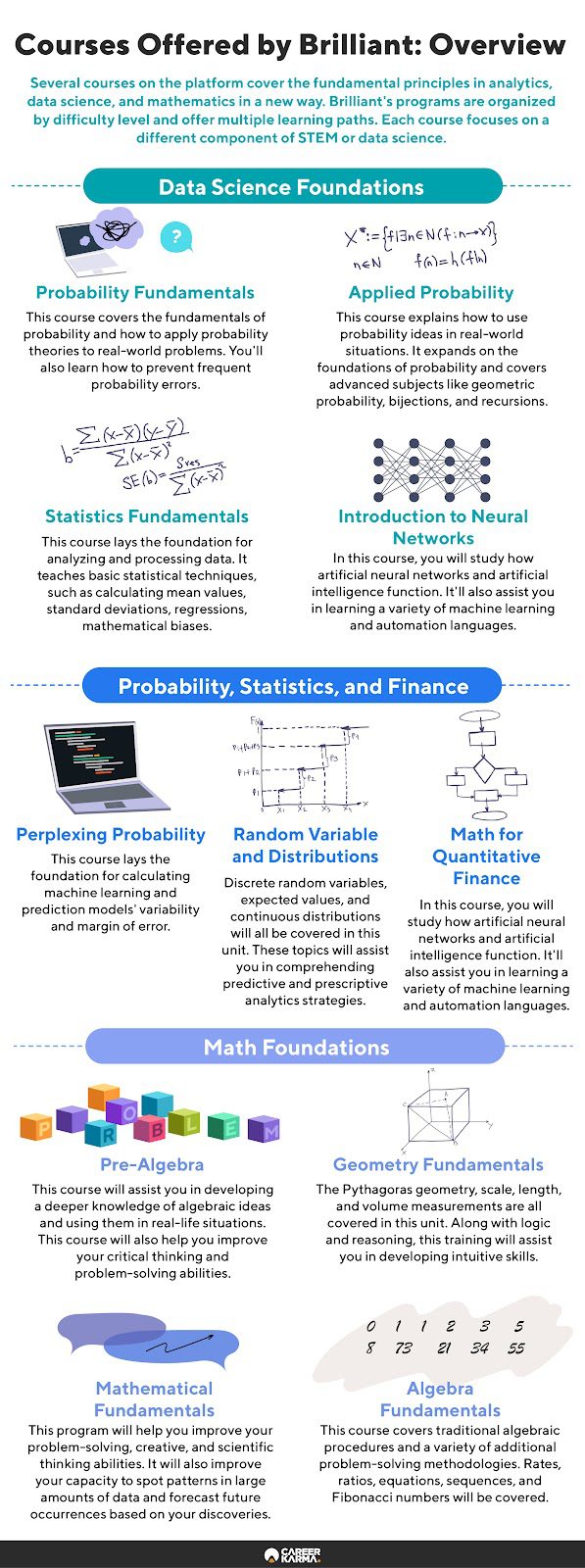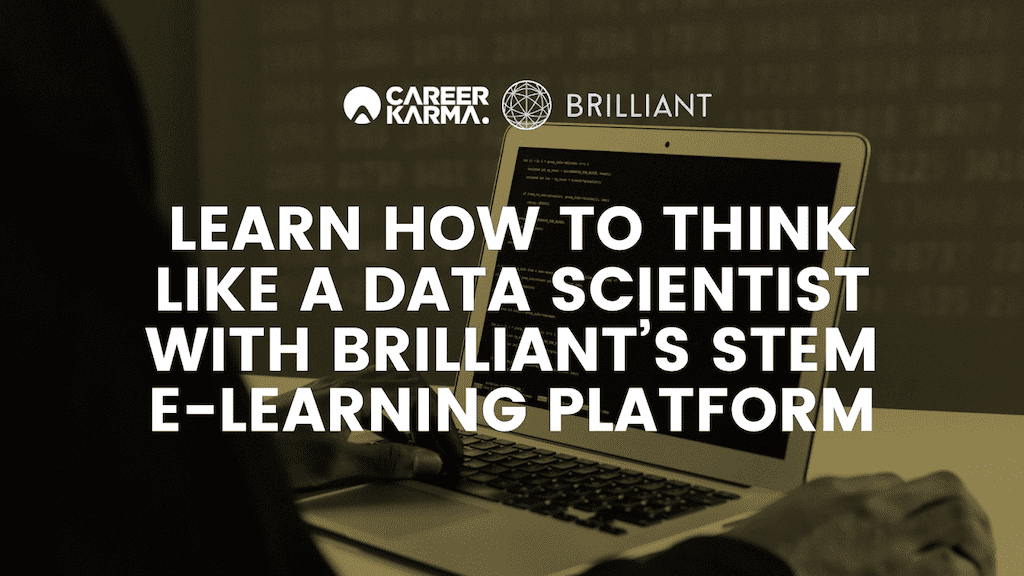In the words of Peter Sondergaard, “Information is the oil of the 21st century, and analytics is the combustion engine.” Indeed, the World Economic Forum predicts that, by 2025, the world will generate 463 exabytes of data per day. With so much information, business owners need data scientists to analyze essential data and provide insights that will help them make better business decisions.
Because this role requires specialized skills, you may need more than bootcamp training or college education to reach mastery. To elevate your skillset, you can supplement your training with Brilliant, an online learning platform that offers short yet interactive and easy-to-understand courses designed to strengthen your foundations in STEM fields like data science.
Brilliant is a STEM e-Learning platform that equips learners with the fundamental skills they’ll need to start a data science career. You’ll get access to interactive and practical courses in mathematics, computer science, statistics, algorithms, and Python.
Start upskilling in data science with Brilliant.Top Five Essential Data Scientist Skills

Data scientists collect, analyze, and interpret data to gain insights and solve evidence-based problems. To achieve this, they combine their acquired knowledge and skills in statistics, probability, deep learning, business intelligence, and computer science.
Data scientists typically collaborate with other key stakeholders and departments. For instance, they work with the software development and data engineering department to build data pipelines, database architecture, machine learning models, and many more tools to optimize the business.
In that light, you will need relevant technical skills alongside several soft skills to succeed in the field. Below, you will find some crucial skills data science professionals need to possess.
1. Statistics and Mathematics Skills
Data science employs various statistical techniques and mathematical concepts to prepare, arrange, and process large and unstructured data sets into understandable forms. Z-score, among other statistical measures, is also helpful in data cleaning and detecting anomalies present in the data set.
Other statistical methods a data scientist should be familiar with include data collection, probability calculations, exploratory data analysis, and A/B statistical testing.
2. Programming Skills
Data scientists use various programming languages to build data pipelines, business intelligence systems, machine learning models, and databases. Also, they automate data collection, organization, and database implementation processes through a wide range of coding skills. Some common languages used by data scientists include Python, SQL, Perl, C, and Java.
3. Data Analysis Skills
Data scientists spot trends and generate key business insights from large data sets through analytics tools and skills. Predictive analytics assists them in predicting the possibility of future events, while diagnostic and prescriptive analytics help to answer evidence-based problems.
4. Effective Presentation and Communication Skills
Data scientists deliver their findings to important business stakeholders using easy-to-understand tools such as graphs, charts, infographics, and video illustrations. This is why excellent communication skills are essential for anyone looking to step into this field. As a data scientist, you must be able to communicate your ideas effectively with all stakeholders regardless of their technical background.
5. Problem-Solving Skills
Data scientists face distinct challenges daily, ranging from data preparation to data security, system development, and more. Excellent problem-solving and critical-thinking skills help them to find creative and efficient solutions to these challenging data science problems.
How to Upskill in Data Science with Brilliant’s e-Learning Platform

Whether you are already a professional working in the data science field or still in training, Brilliant can help you enhance your skills. Of course, Brilliant believes that learning doesn’t have to be boring, which is why it leverages several resources and interactive materials that explain the foundational concepts in analytics, data science, and mathematics.
Data Science Foundations
The Data Science Foundations path helps you develop basic data analytics and interpretation skills using several interactive materials. Here are some courses available in this path:
1. Probability Fundamentals
As its name suggests, the Probability Fundamentals course teaches the basics of probability and how you can apply probability concepts when solving real-world problems. You will learn about estimating probabilities, common paradoxes, outcomes distributions, and fairness. You will also get tips on how to avoid common probability mistakes.
2. Applied Probability
The Applied Probability course builds on the preceding course and covers advanced topics like geometric probability, bijections, and recursions. These topics are crucial to understanding data structure and solving complex data science problems. Using quizzes, visualizations, and other interactive materials, Brilliant helps you understand the application of these probability concepts.
3. Statistics Fundamentals
The Statistics Fundamentals course lays the foundation for analyzing and processing data. It teaches basic statistical techniques, such as calculating mean values, standard deviations, regressions, mathematical biases, and so on. This introductory statistics course is excellent for exploring prescriptive analytics and anomaly detection methods.
4. Introduction to Neural Networks
Neural networks form the basics of deep machine learning and behavioral programming. In this course, you will learn how artificial neural networks and artificial intelligence work. It will also help you master several machine learning and automation languages.
Probability, Statistics, and Finance
This learning path trains you to develop excellent analytics and business intelligence skills using several interactive resources. It features probability fundamentals, applied probabilities, and statistics fundamentals modules alongside other advanced statistics and probability elements. Below you will find some of the courses included in this learning path.
1. Perplexing Probability
The Perplexing Probability course lays the groundwork for calculating the variability and margin of error in machine learning and prediction models. It covers Bayes’ Theorem, complementary probabilities, expected values, and probability distributions.
2. Random Variables and Distributions
In the Random Variable and Distributions course, you will learn to process random and unpredictable variables using relevant tools. This unit will cover discrete random variables, expected values, and continuous distributions. These topics will help you understand techniques in predictive and prescriptive analytics.
3. Math for Quantitative Finance
The Math for Quantitative Finance course provides a solid background to understanding machine learning for algorithmic trading. It also teaches statistical modeling, matrices, and Markov chains. Understanding these topics is crucial in advanced analytics and for creating machine learning models.
Other courses in this learning path include the following:
Math Foundations
The Math Foundations learning path comprises several modules covering algebra, matrices, and geometry. Linear algebra is the building block for developing machine learning and deep learning algorithms. On the other hand, geometry is an essential component for analyzing multidimensional variables and patterns.
The units you will cover in this path are highlighted below.
1. Pre-Algebra
The Pre-Algebra course sets the foundation for more advanced courses in this path’s algebra series. It comes with several puzzles, quizzes, and other interactive materials which will help you build a deeper understanding of algebraic concepts and apply them in the real world. This course will also help you polish your problem-solving and critical thinking skills.
2. Geometry Fundamentals
This unit comprises several modules covering Pythagoras geometry, scaling, length, and volume measurements. This course will also help you develop intuitive skills alongside logic and reasoning. Like in Pre-Algebra, it provides a basis for more advanced geometry courses in this learning path.
3. Mathematical Fundamentals
The Mathematical Fundamentals course will sharpen your ability to discover patterns from data sets and predict future events through your findings. The course covers logical and numerical reasoning and includes contextual, algebraic, and geometric reasoning lessons.
4. Algebra Fundamentals
The Algebra Fundamentals course teaches traditional algebraic techniques alongside several other problem-solving methods. You will learn about rates, ratios, equations, sequences, and Fibonacci numbers.
Asides from the above learning path, Brilliant also has the following learning paths that may also help you understand basic programming languages and think like a data scientist:
Learn How to Think Like a Data Scientist
Many opportunities exist in data science, including varying types of data science jobs, excellent income, and job security, to name a few. To succeed in this sector, you’ll need exceptional problem-solving and communication skills, grit, and other technical and soft skills.
With Brilliant’s learning paths, you will have access to valuable resources and the vital guidance required to develop the right mindset of a data scientist. Brilliant is open to all learners looking for an easy-to-understand and fun approach to learning data science. That includes college students, data science professionals, or data science bootcamp students.
Do you wish to advance your data science career? Sign up for Brilliant today.
About us: Career Karma is a platform designed to help job seekers find, research, and connect with job training programs to advance their careers. Learn about the CK publication.




